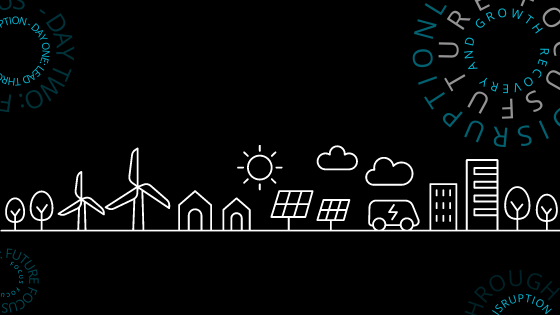Tech is at the forefront of tackling the climate crisis. As part of Chief Disruptor LIVE Spring 2021, we held a fireside chat with CEO and Founder of Evocco, Ahmad Mu’azzam, who is tackling the climate crisis with his innovative app.
In 2017, he and his co-founder, Hugh, realised their mutual passion for sustainability and, specifically, for tackling the climate crisis. They both endeavoured to dedicate their professional careers to support people to drastically change their lifestyles. Evocco is an app that allows users to track, improve, and offset food shopping emissions with a simple snap of a shopping receipt.
Shammah and Ahmad discuss how tech is changing the way we are thinking and talking about food, how plant-based diets are on the rise, and how businesses need to illustrate to consumers that they truly are invested in “the common good”.
So what is Evocco and what does it do?
The food industry accounts for about 27% of greenhouse emissions globally and is something everybody can relate to. Evocco is an app that helps you eat within planetary boundaries by allowing you to track, improve, and offset your food shopping emissions. You can take a photo of your food shopping receipt and it will give you a score based on how nutritious and climate-friendly your purchases are. There are also personalised tips on how to improve the next time you shop, and the option to offset your emissions by planting native woodland.
A big part of this is trying to change consumer behaviour and mindset - have you seen that change happening already?
Definitely - as the pandemic set in, consumers had more time to think about food, cook, and explore different food items. From our research, 81% of users shifted towards a majority plant-based diet which was accelerated by the pandemic itself. It is too early to say what the impacts have been longer-term, but our users are definitely switching towards majority plant-based diets.
One of the biggest conclusions of Bill Gates's book, ‘How to Avoid a Climate Disaster’, is moving towards a more plant-based diet. What else can consumers do to reduce their carbon footprint when shopping?
So plant-based diets and products are definitely more climate-efficient, but within that, you are looking to change how consumers buy those different items. So things around seasonality, freshness, locality are the rules of thumb to follow, after the switch of buying predominantly plant-based items.
One thing that we have been focusing on is this idea of purpose vs. profit and how that looks for businesses in 2021. What does that phrase mean to you?
The 21st-century business needs to exist far beyond generating profit for shareholders. There needs to be an element of purpose and contributing to the good in the world. We started Evocco with our mission to help consumers to reduce their climate impact through food. However, there is a way to link the two; they do not have to be mutually exclusive. Over the last couple of years, there has been more awareness around consumers wanting to see sustainability initiatives; so it is a powerful marketing tool. Businesses need to work hard to find a way to link sustainability targets and to communicate that to consumers. By attaching a sustainability metric it will force them to continue to improve as well as attracting consumers.
Do you think the common good is enough of a reason for businesses to shift to more sustainable ways of operating?
We are engrained to think short-term in business. But really if your business is going to exist into the future we should all be thinking longer-term. None of these businesses will exist if climate change and environmental collapse happen. So “for the common good” should be a strong option for businesses to consider to change thinking beyond short-term gains.
What would you say is the biggest mindset shift that needs to happen to move towards a more sustainable economy?
The two main shifts are towards long-term thinking and a complete mindset shift. Is there a model that we can have that is moving towards growing to a point and then dynamically thriving within that point? Can we assess ourselves thriving not only financially, but on that common good? We need to change the mindset and create a framework to discover these answers.
A question in the chat: “One absurdity we’re trying to solve is eliminating food waste- do you have any ideas how an app like yours can help with this problem?”
We are focussing more on the purchasing and consumption side, but there are elements that we could help with food waste if you are getting people to think about how they can use all the food they are purchasing. Apps do have a place when it comes to food waste as it is about consumer education on food products and efficient purchasing.
Do you think there’s a gap in the market for a partnership with other apps that track emissions so customers can pull all aspects of their lives together to reduce their CO2?
The consumer is going to want one place to go and track all their emissions to understand their impact. However, it is important at the moment to have people focus on different verticals then we can go deep to change behaviour in those specific verticals. Once we crack that, there’s a lot of opportunity - and need - to partner and bring more impact to consumers.





Leave a Comment